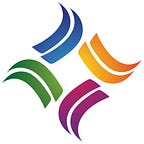Top 8 Most Popular Web Development Frameworks in 2021
Think of an earlier Era where web development was a nightmare due to the complexity it had. In the past few years, it has become a joyful work for passionate engineers.
Why? Because a lot of web development frameworks have been launched in the market to ease the process of web development, save time and boost up flexibility. Since it is not required to create logic, databases, security options, and a lot more things, the complexity is now relatably reduced and thus you can see a drastic growth in the number of companies who provide web development services.
This blog is in the lines of top web development frameworks for 2021.
FRONT-END
Front-end frameworks are used for coding the user interface of a web application. the main languages used for front-end coding are HTML, CSS, and JavaScript. Take a look at this year’s most popular frameworks for front-end development.
(1) Vue.js:
Vue.js is an open-source model–view–ViewModel front-end JavaScript framework for building user interfaces and single-page applications.
The Pros of Vue.js:
- Tiny size
- Virtual DOM rendering and performance
- Reactive two-way data binding
- Single-file components and readability
- Integration capabilities and flexibility
- Community support
The Cons of Vue.js:
- Language barrier
- Reactivity complexity
- Lack of support for large-scale projects
- Limited resources
- Lack of experienced developers
(2) React:
React is an open-source front-end JavaScript library for building user interfaces or UI components. It is maintained by Facebook and a community of individual developers and companies. React can be used as a base in the development of single-page or mobile applications.
The Pros of ReactJS:
- Easy to Learn and Use
- Creating Dynamic Web Applications Becomes Easier
- Reusable Components
- Performance Enhancement
- The Benefit of Having JavaScript Library
The Cons of ReactJS:
- The high pace of development
- Poor Documentation
- JSX as a barrier
(3) Angular:
AngularJS is a JavaScript-based open-source front-end web framework mainly maintained by Google and by a community of individuals and corporations to address many of the challenges encountered in developing single-page applications.
The Pros of Angular:
- MVC Architecture implementation
- Enhanced Design Architecture
- Services and Dependency Injection (DI)
The cons of Angular:
- Limited SEO options
- Angular is verbose and complex
- Steep learning curve
(4) Gatsby:
Gatsby is an open-source static website generator (SSG) that is based on the frontend development framework React and makes use of Webpack and GraphQL technology. It can be used to build static sites that are progressive web apps, follow the latest web standards, and optimized for speed and security.
The Pros of Gatsby:
- Gatsby Cloud
- Out-of-the-box performance
- Easy to learn
- Active community
The Cons of Gatsby:
- There will be a lot of content
- You need to update content a lot
- It’s a corporate-size webshop
BACK-END
Back-end frameworks are used for coding the server-side part of a web application, or simply put, what the user can’t see. Read on to discover the most popular back-end frameworks of the moment.
(5) Node.js:
Node.js is an open-source, cross-platform, back-end JavaScript runtime environment that runs on the V8 engine and executes JavaScript code outside a web browser.
The Pros of Node.js:
- Robust technology stack
- Fast-processing and event-based model
- Scalable technology for microservices
- Rich ecosystem
- Strong corporate support
The Cons of Node.js:
- Performance bottlenecks with heavy computation tasks
- Callback hell issue
- Immaturity of tooling
(6) Laravel:
Laravel is a free, open-source PHP web framework, created by Taylor Otwell and intended for the development of web applications following the model–view–controller architectural pattern and based on Symphony.
The Pros of Laravel framework:
- MVC architecture
- Easy exception handling
- Easy automated testing
- Simplified URL routing configuration
- Smooth database migration
The Cons of Laravel framework:
- Lack of technical talents
- No built-in support function
- Difficulty with some updates
(7) Django:
Django is a Python-based free and open-source web framework that follows the model–template–views architectural pattern. It is maintained by the Django Software Foundation, an American independent organization established as a 501 non-profit.
The Pros of Django Web Development:
- Flexible framework
- Faster development
- REST framework for APIs
- Machine learning capabilities
The Cons of Django web development:
- No conventions
- Not for smaller projects
- Monolithic framework
- Multiple request issue
(8) ASP.NET:
ASP.NET is an open-source, server-side web application framework designed for web development to produce dynamic web pages. It was developed by Microsoft to allow programmers to build dynamic websites, applications, and services.
The Pros of Asp.net:
- Storage customization options
- Speed
- Asynchronous support
The Cons of Asp.net:
- Windows
- IuserRoleStore and leaky abstractions
- Poor security features
Conclusion
There is nothing best or worst until you start comparing, enjoying, disliking, so on and so forth. If you think from a developer’s perspective, learn a web development framework that you love and enjoy. Considering the perspective of the client, go with the one that suits your needs the most and have all the benefits that can even help you in the future.
